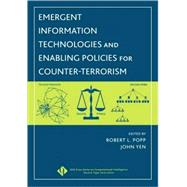
What is included with this book?
JOHN YEN, PhD, is currently University Professor of Information Sciences and Technology and Professor in Charge, College of Information Sciences and Technology at The Pennsylvania State University. He is the author of numerous papers, holds one patent, chairs IEEE FIPA standard working groups on human agent communications, and is a member and Fellow of IEEE.
| Foreword | vii | ||||
| Preface | ix | ||||
| Contributors | xi | ||||
|
1 | (26) | |||
|
|||||
|
|||||
|
|||||
|
27 | (24) | |||
|
|||||
|
|||||
|
|||||
|
|||||
|
|||||
|
51 | (24) | |||
|
|||||
|
|||||
|
75 | (30) | |||
|
|||||
|
|||||
|
|||||
|
|||||
|
|||||
|
|||||
|
|||||
|
|||||
|
|||||
|
|||||
|
105 | (20) | |||
|
|||||
|
|||||
|
|||||
|
|||||
|
|||||
|
125 | (14) | |||
|
|||||
|
|||||
|
|||||
|
139 | (26) | |||
|
|||||
|
|||||
|
|||||
|
165 | (10) | |||
|
|||||
|
|||||
|
175 | (22) | |||
|
|||||
|
|||||
|
|||||
|
197 | (12) | |||
|
|||||
|
|||||
|
|||||
|
|||||
|
|||||
|
|||||
|
209 | (22) | |||
|
|||||
|
|||||
|
|||||
|
231 | (24) | |||
|
|||||
|
|||||
|
|||||
|
255 | (26) | |||
|
|||||
|
|||||
|
|||||
|
|||||
|
281 | (18) | |||
|
|||||
|
|||||
|
|||||
|
299 | (16) | |||
|
|||||
|
315 | (16) | |||
|
|||||
|
|||||
|
331 | (18) | |||
|
|||||
|
|||||
|
|||||
|
349 | (18) | |||
|
|||||
|
|||||
|
|||||
|
|||||
|
367 | (26) | |||
|
|||||
|
393 | (28) | |||
|
|||||
|
421 | (18) | |||
|
|||||
|
439 | (20) | |||
|
|||||
|
|||||
|
|||||
| Index | 459 | (8) | |||
| About the Editors | 467 |
The New copy of this book will include any supplemental materials advertised. Please check the title of the book to determine if it should include any access cards, study guides, lab manuals, CDs, etc.
The Used, Rental and eBook copies of this book are not guaranteed to include any supplemental materials. Typically, only the book itself is included. This is true even if the title states it includes any access cards, study guides, lab manuals, CDs, etc.